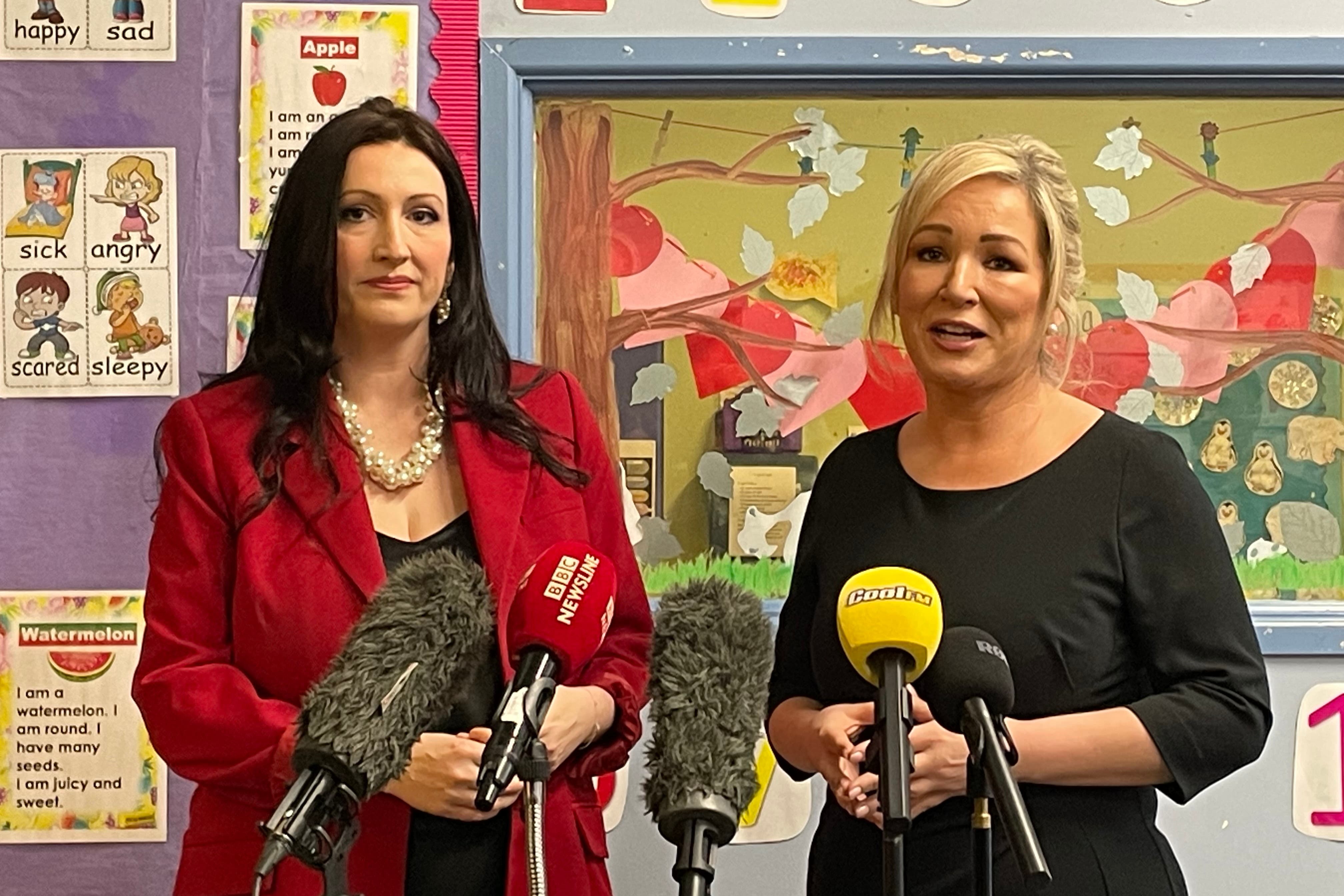First Ministers rule out 15% rates increase for Northern Ireland
The Stormont administration has been pressed to introduce revenue raising measures.

Your support helps us to tell the story
From reproductive rights to climate change to Big Tech, The Independent is on the ground when the story is developing. Whether it's investigating the financials of Elon Musk's pro-Trump PAC or producing our latest documentary, 'The A Word', which shines a light on the American women fighting for reproductive rights, we know how important it is to parse out the facts from the messaging.
At such a critical moment in US history, we need reporters on the ground. Your donation allows us to keep sending journalists to speak to both sides of the story.
The Independent is trusted by Americans across the entire political spectrum. And unlike many other quality news outlets, we choose not to lock Americans out of our reporting and analysis with paywalls. We believe quality journalism should be available to everyone, paid for by those who can afford it.
Your support makes all the difference.Stormont First Minister Michelle O’Neill has ruled out increasing the regional rate in Northern Ireland by 15%.
Deputy First Minister Emma Little-Pengelly added it was the wrong time to be proposing revenue raising measures amid a back and forth between Belfast and London over funding for the re-established devolved government.
The ministers were speaking during a visit to the Shankill Women’s Centre in Belfast.
They earlier visited the Ashton Centre and described developing childcare support as a key priority for the new Executive.
The Treasury has offered to write off almost £600 million of Stormont debt, conditional on the Executive raising £113 million – the equivalent of a 15% regional rate increase – and producing a plan to deliver sustainable finances.
The stipulation is a key element of a £3.3 billion financial package drawn up by the Government to support the return of devolution in Northern Ireland.
On Tuesday, Finance Minister Caoimhe Archibald said she has “serious concerns” over the details published by the Treasury and had asked for an urgent meeting.
Ms O’Neill stated to media: “I am ruling out a 15% rates increase”.
With finances set to be high on the agenda at a meeting of the Executive on Thursday, Ms O’Neill added that they hope “to be at the Treasury’s door” in the coming days, and said they always knew it would be a “battle a day”.
Asked whether the Executive is being realistic over its finances, Ms O’Neill responded: “This isn’t about us having a begging bowl approach, or this isn’t about us failing to recognise that perhaps there are things that we can do differently, and there are efficiencies to be found – we’re up for all of that.
“But I think on one hand for it to be recognised that we’re under funded, and on the other hand to say we need to burden households who are really struggling right now with further costs isn’t acceptable.
“We’re going to have these Treasury discussions. This is going to continue into the days and weeks ahead.”
Ms Little-Pengelly said they want Northern Ireland to be sustainable.
“There will be difficult decisions to be made in the future in terms of reform, and we’re absolutely up for that reform that is needed to be done,” she said.
“But the reality of it is this, we have huge numbers of families in Northern Ireland that are in that squeezed middle, we listen to them all the time in terms of unaffordable childcare pressures and inflation pressures which are really making life more difficult for them.
“What is the narrative across the rest of the UK, it’s all about trying to protect household incomes, they’re even talking about tax reductions, and yet in Northern Ireland we’re being asked to increase the tax burden on these hard-working families.
“That is something that we’re absolutely joint on in terms of making those representations to the UK government and to the Secretary of State that this is absolutely not the right time to be doing that.
“We need to be supporting those families in relation to the pressure they’re under rather than adding to their pressures.”